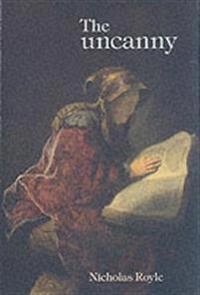

The uncanny
- Utgiven: 2003
- ISBN: 9780719055614
- Sidor: 352 st
- Förlag: Manchester University Press
- Format: Häftad
- Språk: Engelska
Om boken
Åtkomstkoder och digitalt tilläggsmaterial garanteras inte med begagnade böcker
Mer om The uncanny (2003)
2003 släpptes boken The uncanny skriven av Nicholas Royle. Den är skriven på engelska och består av 352 sidor. Förlaget bakom boken är Manchester University Press.
Köp boken The uncanny på Studentapan och spara uppåt 17% jämfört med lägsta nypris hos bokhandeln.
Referera till The uncanny
Harvard
Oxford
APA
Vancouver



















